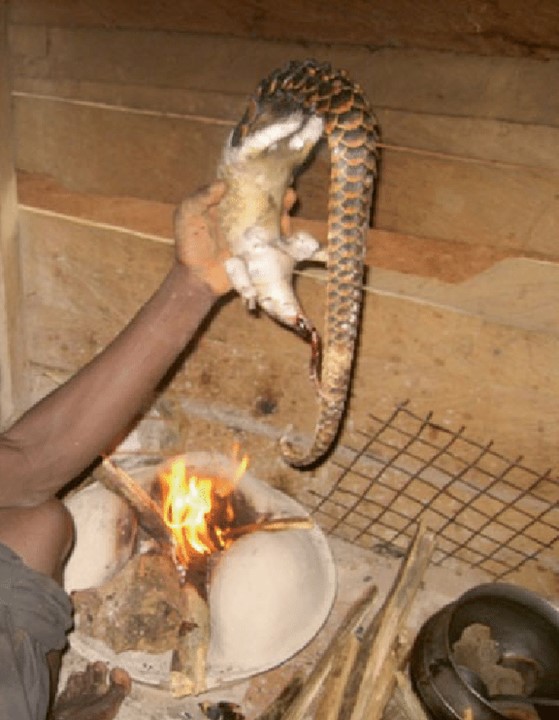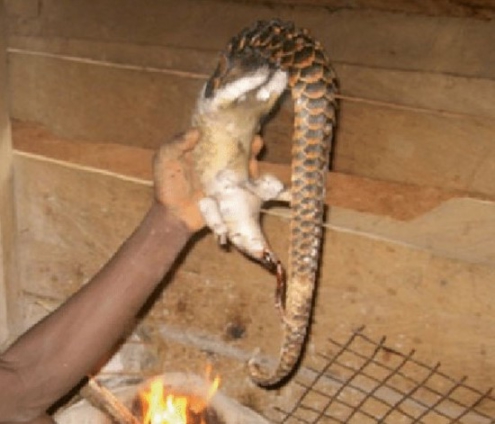Wildlife animals in Ghana
Domesticated animals without supervision, captured animals under human supervision and uncaptured animals without human supervision, that is, feral animals, captive animals and wild animals, are all included in the broad definition of wildlife. Ghana boasts of several wildlife species including bats, antelopes, pangolins, grasscutter, porcupine and monkeys which are all hunted for food, ritual and medicinal purposes.
Over 70% of all emerging and re-emerging infectious diseases affecting humans are from animals. Increased transmission of zoonoses is attributed mainly to encroachment of the wild, abused and unsustainable wildlife hunting, deforestation and living close to wildlife environments. With the emergence of Covid-19, this article explores the role of wildlife in zoonoses and the laws governing wildlife in Ghana.
Possible zoonoses from wildlife
Several epidemics associated with wildlife have been documented: Hendra virus outbreak affecting horses and humans in Australia, 1994-2016 was linked to bats and horses; Nipah virus in Malaysia, 1998-1999 was associated to bats and pigs; severe acute respiratory syndrome worldwide (SARS), 2002-2003 came from bats and civet cats; Middle East respiratory syndrome (MERS) since 2012 was attributed to bats and camels; Ebola outbreak, 2014 was linked to urbanization and consumption of non-human primates, bats and duikers. Empirical evidence suggests that these zoonotic outbreaks arise through contact, handling or preparation of wild animals for varying purposes such as trade and consumption.
Pangolins are known for their meat and scales used for medicinal purposes across Asia and Africa. This animal has appeared in the spotlight in recent times due to its suspected role in the spread of Covid-19. According to recent publications in the journals: Nature and ScienceDirect, coronavirus isolated in pangolins shows 91.02% similarity to SARS-COV 2, the viral strain causing Covid-19, assuming a close relative position to SARS-COV-2. The latest covid-19 transmission from mink to humans on 3 mink farms raises further eyebrows, however, this is yet to be thoroughly investigated. Mink are bred for the high-priced fur in China, Denmark, Russia etc, even though the country of index case has not reported any mink-human related Covid-19 cases.

Laws protecting wildlife in Ghana
Hunting from the wild has been in existence for generations and was mainly guarded by socio-cultural traditions. With increased exploitation over the years, interests in preserving wildlife have also grown. Currently, 21 protected areas resource reserves exist, including wildlife sanctuaries, nature reserves, national parks and wetlands: aimed at preserving animals and plants from extinction. As far back as 1961, Wild Animals Preservation Act 43 was enacted and subsequently amended three times in 1971 (L.I. 685), 1989 (L.I. 1452) and 1991 (L.I. 1525). Its purpose being protecting endangered species, ensuring wildlife preservation and standardizing hunting protocols.
These laws prohibit hunting of nearly extinct creatures including Pangolins, Roan Antelopes, African Grey Parrots, Elephants etc. Under certain guidelines, selected wild animals are allowed for hunting. There is however a closed season for hunting these animals except grasscutters. This period which is from 1st August to 1st December coincides with their breeding season. Individuals involved in hunting, trade or keeping of wild animals as pets need to obtain a license from the Wildlife Division of the Forestry Commission. Flouting these laws results in heavy fines and imprisonments.
The way forward
"We are part of nature — we're part of the ecosystem where our health is linked to the health of wildlife, the health of livestock and the health of the environment," Alice Latinne
The challenge of how human beings can sustainably live with other members of the ecosystem requires a holistic approach in addressing it. Stakeholder collaborations with actors such as the Forestry Commission, Lands Commission and the House of Chiefs are needed. Forest and wildlife preservation agreements and enforcement at local levels must be practised. Enforcement of legislations protecting lands demarcated to protect the ecosystem must be ensured. Furthermore, government must empower enforcement agencies to clamp down on illegal hunting and trafficking of wildlife which is recognised as second to drug and human trafficking in illicit trade and commerce. This means joint operations between the wildlife division and national security agencies like the Police and Military to assist in arresting illegal practices.
Livelihoods of many indigenes in the country depend directly or indirectly on the capture and consumption of wild animals. Domestication and commercial production of some of these wild animals is a more sustainable approach as has been successfully done with grasscutters. Thus, reducing the burden of hunting in the wild and human-animal interaction interface and the possible risk of zoonoses. There is a dearth of research publications on the wildlife animals in Ghana, hence a concerted effort towards research on various aspects of wildlife species and pathogens will help write our own story on zoonoses and draw more accurate zoonotic models in successfully predicting and preventing the next onslaught.
Young Veterinary Doctors and other wildlife staff should be encouraged and sponsored to specialize in wildlife medicine and epidemiology. Early detection of infectious disease outbreaks in wildlife animals will greatly enhance preventive measure to curb spill-overs to human population.
Name of authors: Drs William Tasiame, Yesutor Soku, Ekua Esuon Thompson, Victor Frimpong, Ewurabena Ntiamoah Bediako, Benjamin Kissi Sasu and Ashraf Benim Mahamah
Latest Stories
-
Dreams FC denies allegations of attempting to sign Najeeb Yakubu
8 mins -
Election 2024: ‘Right to free and fair elections non-negotiable’ – Akufo-Addo
13 mins -
Kurt Okraku took out my passport from the U23 squad that travelled to Japan – Najeeb Yakubu alleges
24 mins -
Where hope fails: Ghana’s decaying home for the destitute
33 mins -
NDC Mining Committee for 2024 campaign refutes allegations of recruiting thugs for elections
44 mins -
Traction Control: A lifesaver with an off switch? Here’s why it exists
47 mins -
I don’t need anyman to woo me with money – Miss Malaika 2024 winner refutes pimping claims
54 mins -
”Kurt Okraku sabotaged my national team career because I refused to sign with Dreams FC” – Najeeb Yakubu
55 mins -
Businesses urged to leverage Generative AI for enhanced customer engagement
59 mins -
MultiChoice Ghana partners with Ghana Hotels Association to elevate guest entertainment
1 hour -
Bawumia’s music streaming app or Mahama’s pay-per-view TV channel?
1 hour -
Karpowership Ghana empowers 40 Takoradi Technical University students with scholarship
1 hour -
We expect significant reduction in prices of petroleum products in coming weeks – CEO AOMC
1 hour -
Betway Africa offers once-in-a-lifetime ‘Play-on-the-Pitch’ experience at Emirates Stadium
2 hours -
I coined the term ‘hype man’ in Ghana – Merqury Quaye
2 hours

